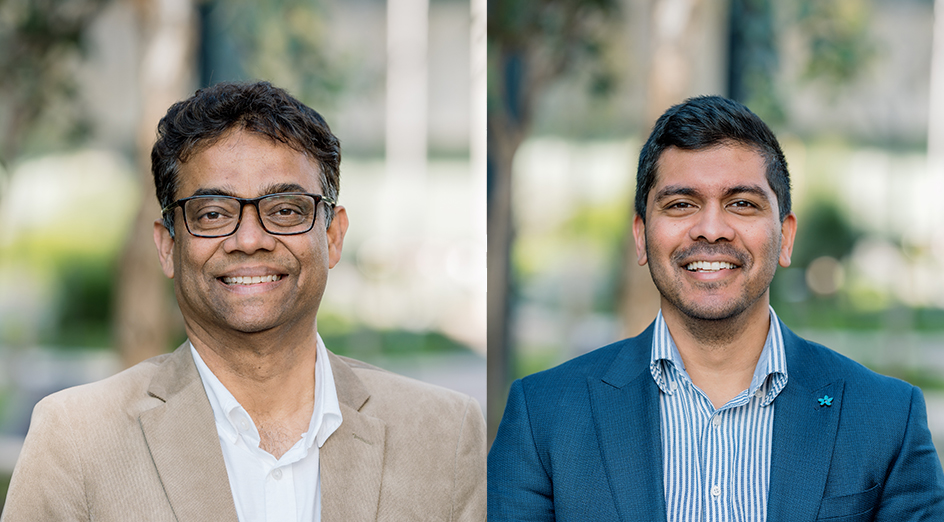AI-driven health digitisation technology that allows patients to track their cardiac health from home is among 10 cutting-edge projects awarded more than $4 million in State Government funding for innovative projects to address WA's sustainable health priorities.
"At Lubdub technologies we foresee a future where a specialist can evaluate a patient's heart health from anywhere in the world, using a combination of ultra-thin wearable sensors and saliva sampling."
Dr Nikhilesh Bappoo
The Innovation Challenge – Sustainable Health Priorities Program is designed to help WA health service providers, universities, not-for-profit organisations and industry bring innovative health initiatives to life, ensuring local communities receive affordable and personal care closer to home.
The program is funded by the Future Health Research Innovation (FHRI) Fund which provides a secure source of funding to drive health and medical research, innovation and commercialisation.
Lubdub Technologies, founded by researchers at The University of Western Australia and the Harry Perkins Institute of Medical Research, envisions revolutionising heart care by placing diagnostics in people's hands at the point-of-need, avoiding time-consuming trips to specialists and time spent waiting for lab results.
Lubdub co-founders and UWA researchers Professor Girish Dwivedi, Head of the Perkins Cardiovascular and Diabetes Program, and Dr Nikhilesh Bappoo, cardiovascular engineering PhD graduate at UWA and Harry Perkins, said the team received $436,900 towards its Mapping heart health at home: remote and rapid cardiac assessment project.

Image: Professor Girish Dwivedi (left) and Dr Nikhilesh Bappoo.
Cardiovascular disease is the leading cause of death globally, and Australia's number one killer, with one Australian dying every 12 minutes from the condition.
"At Lubdub technologies we foresee a future where a specialist can evaluate a patient's heart health from anywhere in the world, using a combination of ultra-thin wearable sensors and saliva sampling," Dr Bappoo said.
"That future is now within our reach, with our patented technologies that support assessment of heart rhythm and heart failure biomarkers rapidly and effortlessly, without visiting an advanced healthcare facility."
Also successful in the FHRI funding round was the Lions Eye Institute, allocated $276,000 to deliver the State's first metropolitan collaborative eye care model - providing timely specialist eye care to people in Midland.
Based on the Lions Outback Vision model, the Midland clinic will be staffed by Optometry School staff and students from UWA - supervised by Lions Eye Institute and Royal Perth Hospital glaucoma consultants - to provide efficient, cost-effective triage and care for public glaucoma patients.
Professor Bill Morgan from the Lions Eye Institute and UWA said there were currently no public ophthalmology services east of the city, where the demand was greatest.
"Faster, more reliable and affordable services are desperately needed east of the city for patients with chronic eye diseases," Professor Morgan said.
"Royal Perth Hospital is unfortunately overflowing with these patients, and this service will provide them with the timely service that they deserve, closer to where they live."






